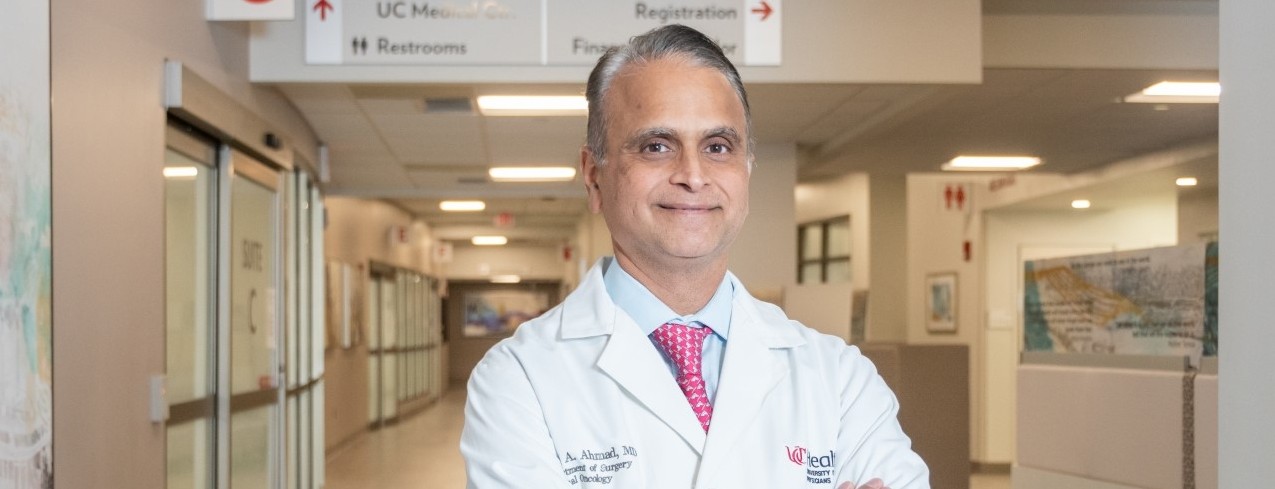
Cancer runs in my family. How can I cut my risk?
Cancer Center expert featured in New York Times article
The University of Cincinnati Cancer Center's Syed Ahmad was featured in a New York Times article discussing ways to reduce your risk of cancer when it runs in your family.
Ahmad said patients may be referred to a genetic specialist to check for gene changes that increase your risk if your doctor deems it necessary.
“A lot of times, patients are scared to go to a genetic counselor” because of “fear of the unknown,” said Ahmad, interim director of the Cancer Center, professor, Hayden Family Endowed Chair for Cancer Research, section chief of surgical oncology and vice chair for faculty development in the Department of Surgery in UC's College of Medicine.
Ahmad added that having genetic variants doesn't guarantee you will develop cancer. But common genes tested for include the BRCA1 and BRCA2 genes if several family members have had breast cancer, or Lynch syndrome if multiple relatives have had colon cancer. Lynch syndrome is an inheritable genetic condition that can increase colon cancer risk by up to 80% for men and 60% for women.
Read the New York Times article.
Featured photo at top of Dr. Ahmad. Photo/University of Cincinnati Cancer Center.
Related Stories
Chronic skin disorder risk reduces over smoke-free years
September 5, 2024
The University of Cincinnati's Robert Van Haren was featured in a MedCentral article discussing recent research that found smoking cessation significantly reduced the risk of developing skin condition hidradenitis suppurativa.
Tennessee woman travels to UC for lifesaving care
November 26, 2024
WLWT highlighted East Tennessee woman Trisha Wilhoit who traveled to the University of Cincinnati Cancer Center for treatment for her Stage 4 colon cancer and received a liver donation from her sister Camille Berkley.
Cancer runs in my family. How can I cut my risk?
April 16, 2025
The University of Cincinnati Cancer Center's Syed Ahmad was featured in a New York Times article discussing ways to reduce your risk of cancer when it runs in your family.
